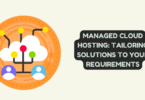
Managed IT Services
In the current digital era, technological advancements and the need for streamlined operations are driving a significant transformation within the healthcare industry. As healthcare providers endeavor to provide high-quality patient care while simultaneously managing complex IT infrastructures, the importance of managed IT services has grown. This blog examines the various advantages managed IT services can provide to healthcare organizations. From enhanced data security and compliance to improved IT infrastructure and network performance, 24/7 technical support, disaster recovery planning, and strategic IT consultation, these services provide healthcare practices with comprehensive solutions tailored to their specific requirements. By utilizing managed IT services, healthcare providers can optimize their operations, improve patient care, and ensure compliance with evolving healthcare technology standards, all while saving money and achieving predictable IT budgeting.
Enhanced Data Security and Compliance
Managed IT services experts provide healthcare organizations with enhanced data security measures and guarantee HIPAA compliance. The implementation of robust security protocols, encryption techniques, and access controls protects patient data from unauthorized access and cyber threats. Proactive monitoring, vulnerability assessments, and security audits enable healthcare providers to maintain a secure IT environment by staying ahead of emergent threats. Compliance management guarantees adherence to industry regulations, protection of personal information, and data integrity.
Improved IT Infrastructure and Network Performance
Managed IT services aid healthcare organizations in optimizing their IT infrastructure and maximizing network performance. They evaluate the current infrastructure, identify areas for development, and implement upgrades and enhancements to ensure operations run smoothly. MSPs increase network dependability, decrease outage, and improve connectivity by utilizing advanced technologies. They provide proactive monitoring, troubleshooting, and performance optimization, ensuring that healthcare providers have efficient and uninterrupted access to vital applications and systems.
Efficient Electronic Health Record (EHR) Management
Management of electronic health records (EHR) efficiently is essential for healthcare organizations. Managed IT services contribute to the streamlining of EHR processes, assuring the accuracy, accessibility, and security of data. MSPs are knowledgeable in EHR system implementation, customization, and integration with other healthcare systems. They ensure data integrity, interoperability, and compliance with industry standards. Managed IT services optimize EHR workflows, enhance documentation processes, and improve the overall efficacy and efficiency of patient care delivery.
Technical Support and Helpdesk Services
Healthcare organizations receive 24/7 technical support and helpdesk services from managed IT services. With a dedicated support team, MSPs provide timely assistance for IT issues, swiftly resolving them to reduce downtime. They implement a centralized helpdesk system for logging and monitoring support requests, thereby ensuring efficient handling and prioritization. MSPs utilize remote support capabilities to troubleshoot issues remotely and provide on-site support when necessary. This support is available 24 hours a day, seven days a week, enhancing the operational efficacy of healthcare providers.
Scalability and Flexibility for Growing Practices
Managed IT services offer scalability and adaptability to expanding healthcare practices. MSPs modify IT infrastructures to meet growing demand, whether by adding new users, expanding storage capacity, or incorporating new locations. They offer cloud-based solutions and virtualization technologies that enable healthcare organizations to scale their IT resources as necessary. This scalability and adaptability enables practices to accommodate changes and expansions without interruptions, optimizing operations and supporting the industry’s evolving requirements.
Disaster Recovery and Business Continuity Planning
Managed IT services ensure healthcare firms have solid disaster recovery and business continuity plans. MSPs protect vital data through backup and recovery, regular data backups, and off-site storage. They identify risks and create disaster mitigation plans. MSPs ensure system recovery and company continuation after a disruption. Managed IT services help create, test, and improve disaster recovery strategies. Healthcare organizations may protect patient data, maintain operational continuity, and promptly restart key services after unforeseen occurrences by planning and implementing robust disaster recovery strategies.
Strategic IT Planning and Consultation
Managed IT services help healthcare firms integrate their IT initiatives with their business goals through strategic IT planning and advice. MSPs assess healthcare providers’ needs, IT infrastructure, and technology roadmaps. These roadmaps explain the company’s IT objectives, milestones, and timescales. Strategic IT planning and advising helps healthcare companies maximize IT resources, improve operational efficiency, and stay ahead of emerging technology, enabling their long-term growth and success.
Cost Savings and Predictable IT Budgeting
Healthcare organizations save money and budget predictably with managed IT services. MSPs manage IT for healthcare providers, saving them money on salaries, training, and infrastructure. MSPs offer complete IT solutions at a predictable monthly cost, helping healthcare firms budget and allocate resources. MSPs manage IT infrastructure and operations to improve operational efficiency and reduce downtime, saving healthcare practices money and increasing productivity.
Compliance with Evolving Healthcare Technology Standards
Managed IT services help healthcare firms meet changing technology standards. MSPs keep healthcare providers up to date on regulations, industry standards, and technology. Data security, privacy, interoperability, and data sharing protocols are implemented and managed by MSPs. Healthcare businesses can reduce risks, secure patient data, and retain their reputation as quality providers by complying with emerging healthcare IT standards.
Conclusion
Managed IT services improve data security and compliance, IT infrastructure and network performance, EHR management, 24/7 technical support and helpdesk services, scalability and flexibility for growing practices, disaster recovery and business continuity planning, strategic IT planning and consultation, cost savings and predictable IT budgeting, and compliance with evolving healthcare regulations. These services help healthcare providers streamline operations, improve patient care, secure data, and manage the complicated healthcare IT landscape, helping them succeed in a quickly changing digital healthcare ecosystem.






